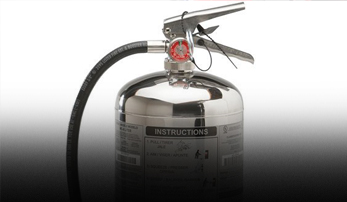From Accras bustling markets to quiet rural communities, the latest ghana news today shapes national
- From Accras bustling markets to quiet rural communities, the latest ghana news today shapes national conversations and future possibilities.
- Political Developments and Governance
- Constitutional Reforms on the Horizon
- Economic Outlook and Challenges
- Impact of Global Economic Trends
- Social Issues and Development
- Challenges in the Education Sector
- Technological Advancements and Innovation
From Accras bustling markets to quiet rural communities, the latest ghana news today shapes national conversations and future possibilities.
Ghana experiences a dynamic flow of information, with developments unfolding rapidly across various sectors. Understanding ghana news today is crucial for citizens, businesses, and international observers alike. From political shifts and economic trends to social changes and cultural events, staying informed is key to navigating the complexities of modern Ghanaian life. This article delves into the current affairs shaping the nation, providing a comprehensive overview of pertinent issues and their potential implications.
The media landscape in Ghana is diverse, encompassing state-owned outlets, privately-owned newspapers, radio stations, and increasingly, online platforms. This multi-faceted approach ensures a range of voices and perspectives are represented, though challenges remain in ensuring accurate and unbiased reporting. Access to information is improving with increased internet penetration, but digital divides still exist, particularly in rural communities.
Political Developments and Governance
Recent political discourse in Ghana has centered around upcoming elections and related policy debates. The government’s focus on infrastructure development, particularly in the road and railway sectors, has generated significant discussion. There’s been a renewed emphasis on strengthening democratic institutions and promoting good governance, but concerns remain regarding corruption and transparency. Experts are closely watching how these issues will play out in the lead-up to the polls and their potential impact on the nation’s trajectory.
Opposition parties continue to voice concerns over economic management and social inequality. Debates around fiscal policy, job creation, and accessible healthcare are core tenets of their platforms. The role of civil society organizations in holding the government accountable is becoming increasingly important, with groups actively advocating for policy changes and greater citizen participation. The success of Ghana’s democracy hinges on fostering a civic engagement that is both informed and constructive.
| New Patriotic Party (NPP) | Economic Growth & Infrastructure Development |
| National Democratic Congress (NDC) | Social Welfare & Job Creation |
| Convention People’s Party (CPP) | Pan-Africanism & Industrialization |
Constitutional Reforms on the Horizon
Discussions surrounding potential constitutional reforms are gaining momentum in Ghana. A central point of contention revolves around the election of Metropolitan, Municipal and District Chief Executives (MMDCEs), currently appointed by the President. Proponents argue that allowing direct election would bolster local accountability and decentralization. However, concerns have been raised about potential political polarization at the local level and the potential impact on efficient governance. This debate is expected to continue and require broad public consultations.
Amendments related to land tenure systems are also under consideration, aiming to address long-standing disputes and promote sustainable land management. Competing interests between traditional authorities, landowners, and the government present a complex challenge. Finding a consensus that respects customary rights while facilitating economic development is paramount. A transparent and inclusive process is vital to ensure any proposed changes are broadly accepted and effectively implemented.
Strengthening the independence of the judiciary remains crucial for safeguarding the rule of law. Concerns about political interference and delays in justice delivery prompt continuous calls for judicial reform. Increased funding for the judiciary, coupled with measures to enhance efficiency and capacity building, are vital for ensuring fair and equitable access to justice for all citizens. Ghana news today often highlights cases of lingering legal battles, emphasizing the urgency of these reforms.
Economic Outlook and Challenges
Ghana’s economy is navigating a complex set of challenges and opportunities. While the country has experienced growth in recent years, external factors, such as global commodity price fluctuations and the pandemic’s lingering effects, continue to pose significant risks. Diversification of the economy remains a priority, with emphasis on bolstering the manufacturing sector and promoting value-added agriculture. This requires strategic investments in infrastructure, skills development, and a favorable regulatory environment.
Inflation remains a key concern, impacting household incomes and business profitability. The Bank of Ghana is implementing monetary policy measures to curb inflation, but the effectiveness of these measures is contingent on addressing supply-side constraints and improving productivity. The national debt remains substantial, necessitating prudent fiscal management and sustainable debt restructuring strategies. Addressing these macroeconomic challenges is essential for ensuring long-term economic stability and prosperity.
- Cocoa production contributes significantly to export earnings.
- Gold mining is a major source of foreign exchange.
- Tourism offers considerable growth opportunities but needs investment.
- The agricultural sector employs a large percentage of the population.
Impact of Global Economic Trends
Global economic trends, including rising interest rates and geopolitical tensions, are significantly impacting Ghana’s economy. Increased borrowing costs make it more expensive for the government to access international capital markets. Supply chain disruptions are driving up the price of imported goods and fueling inflation. Fluctuations in commodity prices, particularly oil and gold, have a direct impact on Ghana’s trade balance and revenue generation. These external shocks underscore the importance of building resilience and diversifying the economy.
The ongoing conflict in Ukraine exacerbates these challenges, disrupting global supply chains and contributing to food security concerns. Ghana, like many African countries, is vulnerable to rising food prices and potential shortages. The government is implementing measures to boost local food production and reduce reliance on imported staples. Strengthening regional trade ties and fostering partnerships with international organizations are crucial for mitigating the impact of these global disruptions.
Increased foreign direct investment (FDI) is vital for driving economic growth and creating jobs. However, attracting FDI requires a stable regulatory environment, transparent governance, and a skilled workforce. The government is actively working to improve the ease of doing business and promote Ghana as an attractive investment destination. This includes streamlining bureaucratic procedures, offering tax incentives, and investing in infrastructure development. Ghana news today regularly reports on efforts to attract FDI.
Social Issues and Development
Ghana continues to grapple with a range of social issues that hinder its development progress. Access to quality education and healthcare remains unevenly distributed, with disparities between urban and rural areas. Addressing these inequities requires increased investment in human capital and targeted interventions to support vulnerable populations. Empowering women and girls through education, economic opportunities, and access to healthcare is critical for achieving sustainable development.
Environmental degradation, stemming from illegal mining (galamsey), deforestation, and pollution, is posing serious threats to the country’s natural resources. The government is taking steps to combat galamsey, but enforcement remains a challenge. Promoting sustainable environmental practices, investing in renewable energy sources, and raising awareness about environmental conservation are essential for safeguarding Ghana’s natural heritage.
- Strengthening the educational system is paramount for creating a skilled workforce.
- Improving healthcare access and quality is vital for enhancing public health.
- Addressing environmental degradation is essential for sustainable development.
- Promoting social inclusion and equity is crucial for reducing disparities.
Challenges in the Education Sector
The Ghanaian education system faces a number of challenges, including inadequate infrastructure, limited access to quality teaching, and a curriculum that often lags behind the evolving demands of the job market. Addressing these issues requires increased investment in teacher training, improved school facilities, and a revised curriculum that emphasizes critical thinking, problem-solving, and practical skills. Expanding access to vocational and technical education is also crucial for preparing young people for the workforce.
Financial barriers to education remain a significant obstacle for many families, particularly in rural areas. Providing scholarships, bursaries, and financial assistance programs can help reduce these barriers and ensure that all children have the opportunity to reach their full potential. Parents and communities also play a crucial role in supporting education by encouraging student attendance, participating in school governance, and advocating for improvements in the quality of education.
The shift towards digital learning provides opportunities to expand access to education and improve learning outcomes. However, ensuring equitable access to technology and internet connectivity for all students is essential. Investing in digital infrastructure, providing training for teachers, and developing engaging digital learning content are crucial for realizing the full potential of technology-enhanced education.
Technological Advancements and Innovation
Ghana is witnessing a rapid expansion in the adoption of digital technologies, driven by increased internet penetration and the growing availability of mobile devices. This is creating new opportunities for economic growth, social development, and improved governance. Fintech companies are leading the charge in innovation, providing innovative financial services and promoting financial inclusion. The growth of e-commerce and digital businesses is transforming the retail landscape.
The government is actively promoting digital transformation through initiatives such as the Ghana Digitalisation Agenda, which aims to digitize key government services and processes. This includes the implementation of a national digital ID system, online tax filing, and electronic health records. However, cybersecurity concerns and the need for digital literacy training are paramount. Protecting data privacy and ensuring that citizens have the skills to navigate the digital world safely and effectively are crucial for realizing the full benefits of digital transformation.
| Financial Services | Mobile Money, Digital Lending Platforms |
| Agriculture | Precision Farming, E-Extension Services |
| Healthcare | Telemedicine, Electronic Health Records |
The adoption of advanced technologies, such as artificial intelligence (AI) and machine learning (ML), is gaining traction in Ghana, with applications in healthcare, finance, and agriculture. Leveraging these technologies can help improve efficiency, automate tasks, and generate valuable insights. Sustaining digital advancements necessitates improvement in infrastructure and a change in attitude and skills acquisition.
Ghana is a nation in transition, grappling with challenges and embracing opportunities. The insights found in ghana news today offer a window into the ongoing developments, providing a crucial understanding of the path forward. Continuous monitoring and open dialogue are paramount as the nation navigates its evolving landscape.









Recent Comments